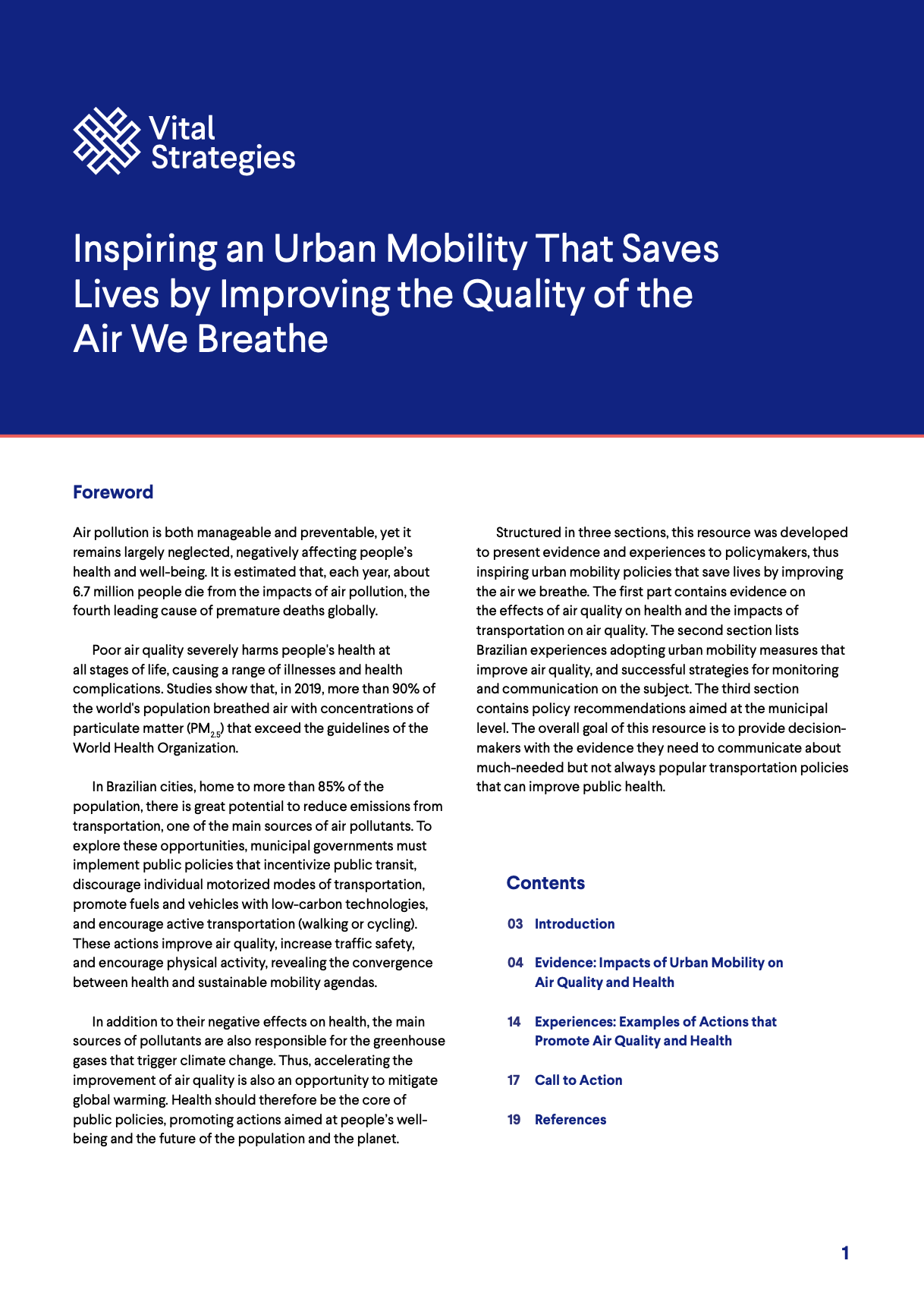Air pollution is both manageable and preventable, yet it remains largely neglected, negatively impacting the health and well-being of the population. It is estimated that, each year, about 6.7 million people die from the impacts of air pollution, the fourth leading cause of premature deaths globally.
In Brazilian cities, home to more than 85% of the population, there is great potential to reduce emissions from transportation, one of the main sources of air pollutants. To explore these opportunities, municipal governments must implement public policies that incentivize public transit, discourage individual motorized modes of transportation, promote fuels and vehicles with low-carbon technologies, and encourage active transportation (walking or cycling). These actions improve air quality, increase traffic safety, and encourage physical activity, revealing the convergence between health and sustainable mobility agendas.
This resource was developed to present evidence and experiences to policymakers, thus inspiring urban mobility policies that save lives by improving the air we breathe. The overall goal of this resource is to provide decision makers with the evidence they need to communicate about much-needed but not always popular transportation policies to improve public health.
Recent Abstracts
RESET Alcohol – Public opinion, attitudes and support for government action on alcohol…
RESET Alcohol – Public opinion, attitudes and support for government action on alcohol…
Childhood Lead Exposure Prevention: Assessment of Blood Lead Surveillance Capacity in Colombia
Childhood Lead Exposure Prevention: Inventory of Blood Lead Surveillance Capacity Indonesia
The Perception of Air Quality and Community Resilience Towards Air Pollution Issues in…
Effect of women empowerment on treatment-seeking practice for sexually transmitted infections among women…
Stage at diagnosis and survival among adult patients with cancer in Rwanda: A…
Impact of nutrient warning labels on Colombian consumers’ selection and identification of food…
A Systems Map of the Challenges of Climate Communication
Increased Taxes and Regulation of Indian Cigarillos (Bidi) Industry: Effects on Revenue and…
